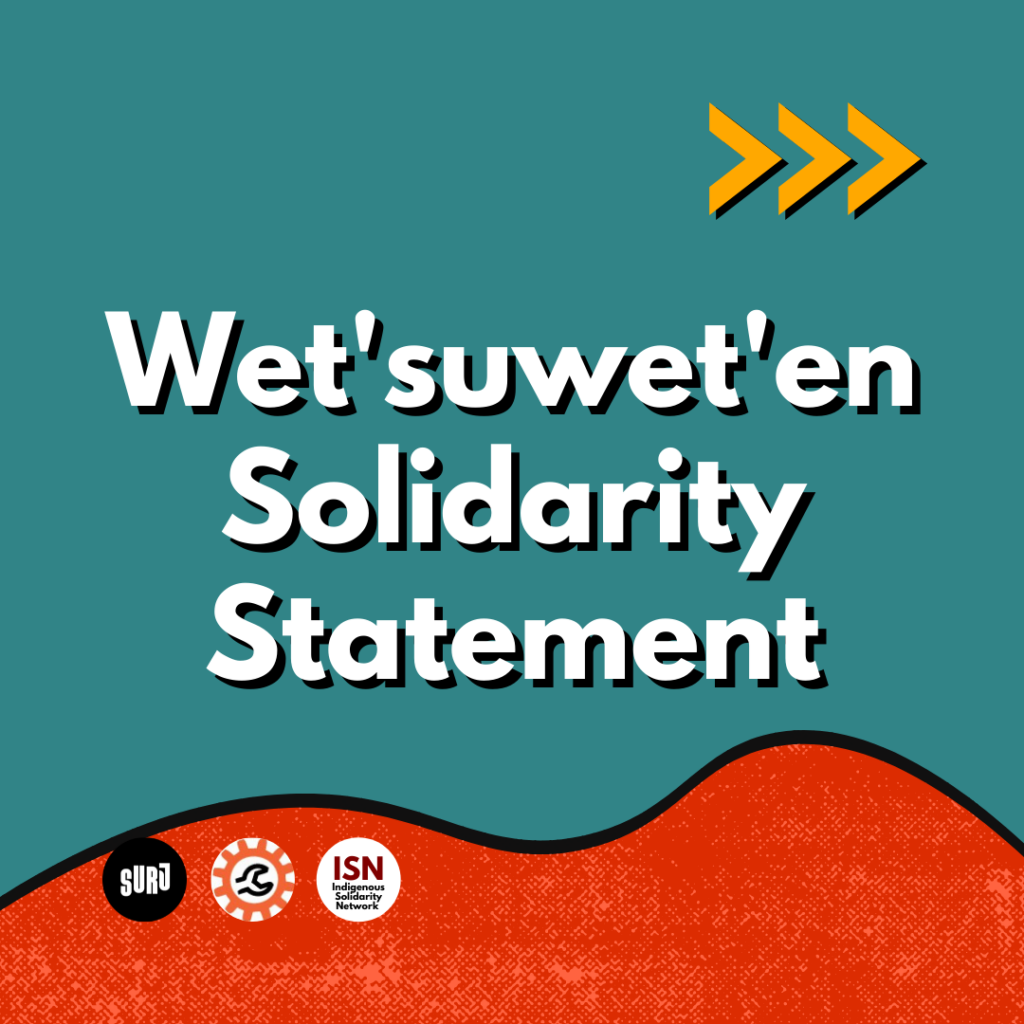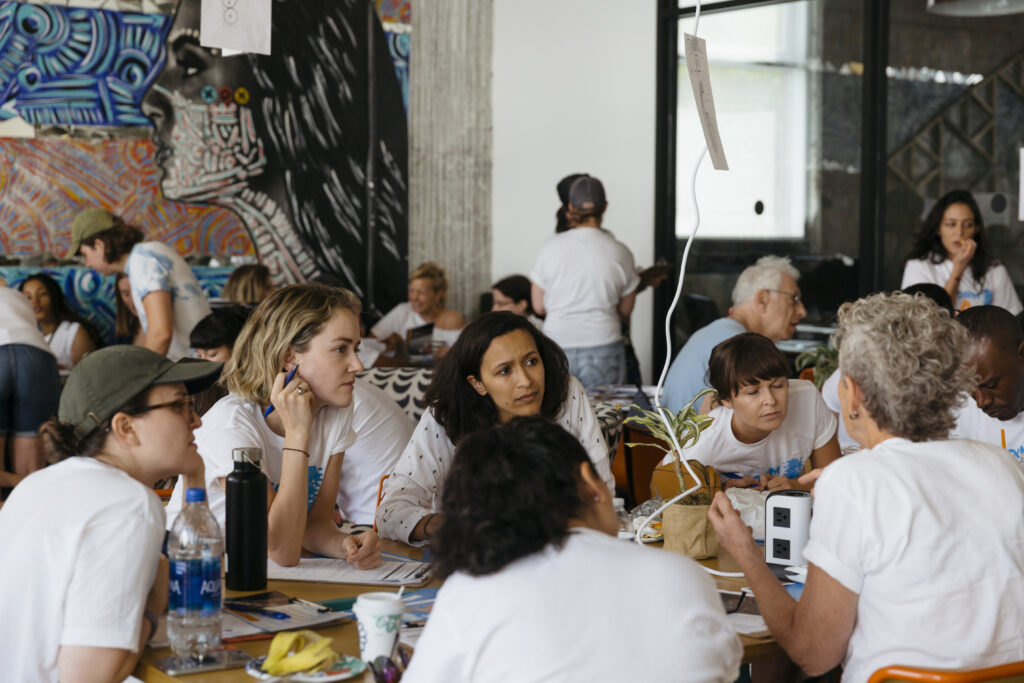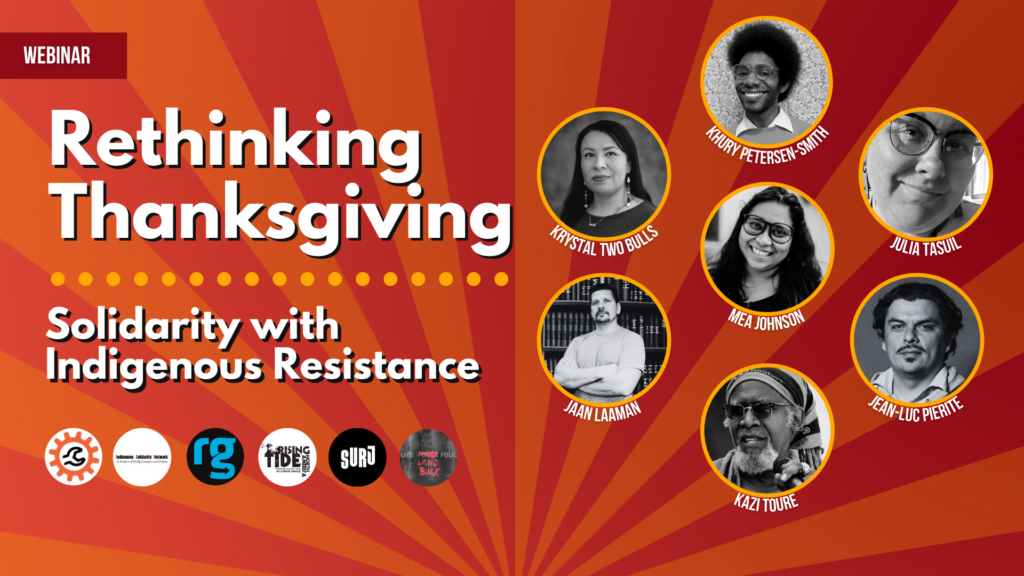The Indigenous Solidarity Network, Showing Up for Racial Justice (SURJ), and Catalyst Project are in full solidarity with the Wet’suwet’en Nation in their struggle to protect their lands, territories and rights of their communities. The Coastal GasLink (CGL) pipeline company, backed by the brutality of the Royal Canadian Mounted Police (RCMP), is attempting to push through a 670-kilometer fracked gas pipeline despite unanimous opposition under ‘Anuc niwh’it’en (Wet’suwet’en law) by all five clans of the Wet’suwet’en. This is Canadian colonial violence and this form of State-sanctioned militarized violence is happening to Indigenous peoples around the world.
This proposed pipeline would carry fracked gas from northeast ‘British Columbia’ to a future liquefied natural gas (LNG) terminal on the coast, the largest of its kind ever proposed in Canada. For over a decade, the Wet’suwet’en Nation has asserted their sovereignty to stop fossil fuel companies from trespassing on unceded lands—Canada has no treaties with their Nation and no claim to any jurisdiction over their lands. In September 2021, Coastal GasLink bulldozed an ancient Wet’suwet’en village site despite consistent resistance and legal requirements, and in November, during a two-day siege, the RCMP escorted Coastal GasLink with full military force, arresting 32 land defenders and violently removing Wet’suwet’en people from their own lands. This included the arrest of Gidimt’en Checkpoint spokesperson Sleydo’; Dinï ze’ Woos’ daughter Jocelyn Alec; Sleydo’s partner Cody Merriman (Haida nation); and 2 journalists. In November 2020, Sleydo’ spoke at a webinar hosted by our organizations, while this year during that same annual webinar, Sleydo’ was locked in jail for defending her peoples’ lands.
Take Action.
As organizations primarily based south of the imposed colonial US-Canadian border, which bring white people into fights for racial and economic justice, it is essential we support the Wet’suwet’en in this struggle. This pipeline and colonial violence is funded by many US-based banks. We call for our members and networks to answer the recent Gidimt’en Checkpoint Call to Action which asks people to come to Camp, host a solidarity action, issue a solidarity statement from your organization or group, pressure the government, banks, and investors, and donate. We also encourage people to support the International Week of Action to Defund Coastal GasLink starting December 20, more info can be found in the toolkit, including templates for social media & emails and an action map.
Police are a force of colonialism & racism.
This struggle exposes that police in ‘Canada,’ just as in the ‘US’ are a force of colonialism and racism that work in the interests of massive corporations. The same is true in the struggle to #StopLine3 where police in Minnesota were paid over $2 million USD by Enbridge, a Canadian-based energy company, to target water protectors. Money is allocated to police to repress and arrest Indigenous peoples who are on the frontlines fighting against the climate crisis.
Additionally, extractive projects on Indigenous territories lead to an increase in murdered & missing Indigenous women, girls and two-spirit people, #MMIWG2S as a result of transient man camps for pipeline workers. Preventing pipelines means defending Indigenous women, girls and two-spirit people.
Indigenous sovereignty is the solution to the climate crisis.
Colonialism is a root cause of climate change, and Indigenous rights and sovereignty are the solutions to the climate crisis. The Coastal Gas Link project represents the expansion of the fossil fuel economy and the continued colonization of Indigenous lands. Climate justice demands that these projects stop and that Indigenous sovereignty is respected. A recent report from Indigenous Environmental Network and Oil Change International found that “Indigenous resistance has stopped or delayed greenhouse gas pollution equivalent to at least one-quarter of annual U.S. and Canadian emissions.” It is clear that Indigenous peoples, their rights, their laws and ways of knowing and being offer best practices to sustainably manage land in direct relationship with the natural world. These practices have proven successful for millennia as demonstrated by the fact that 80% of the world’s biodiversity remains in Indigenous lands and territories.
It is imperative to build stronger support with each other across colonial borders. It is in our collective mutual interest to support the Wet’suwet’en. No matter where we are, we are connected by our commitments.
We are in full solidarity with the Wet’suwet’en. We support the sovereignty of all Indigenous nations. We encourage our networks to actively support this and other Indigenous-led movements. Respond to the Call to Action where you are, from disrupting business as usual, to divesting from banks funding the theft of Indigenous lands, there are actions we can all take to be in solidarity and to prevent catastrophic climate change.
Towards the decolonized world we all need,
Indigenous Solidarity Network – Showing Up for Racial Justice (SURJ) – Catalyst Project
More information and developing stories:
Website: yintahaccess.com / IG: @yintah_access / Twitter: @Gidimten / Facebook: @wetsuwetenstrong / Youtube: Gidimten Access Point / TikTok: GidimtenCheckpoint
#WetsuwetenStrong #AllOutForWedzinKwa #ShutDownCanada #DefundCoastalGasLink












